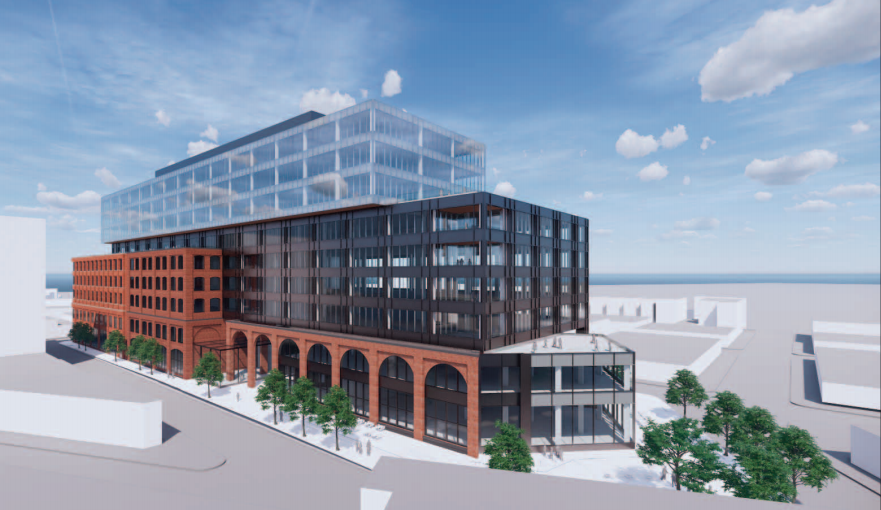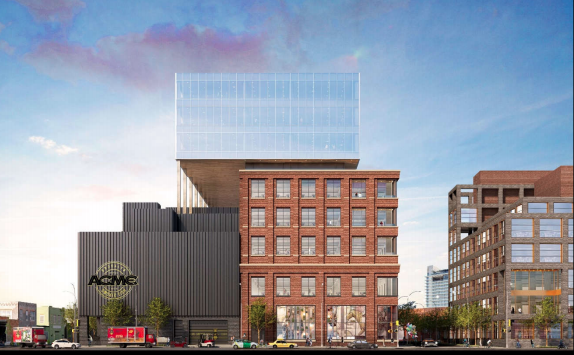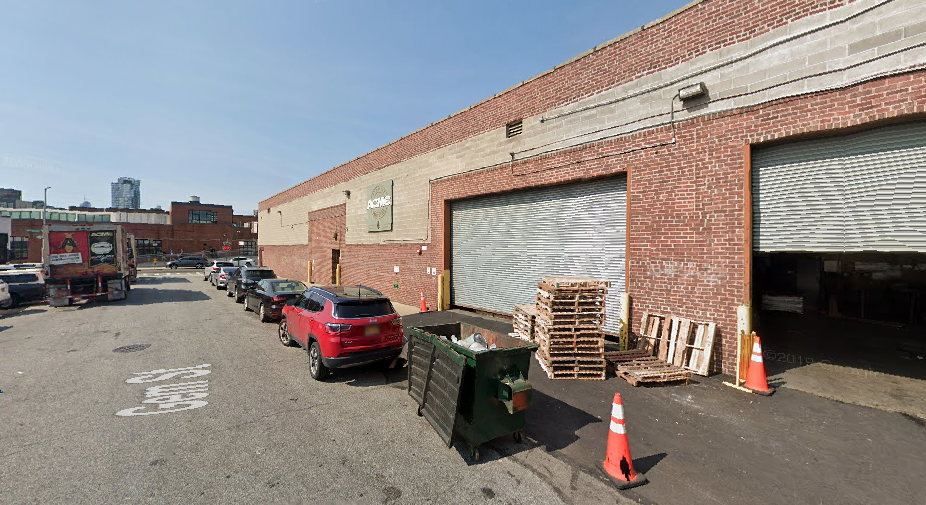BP Adams Voices Support for Greenpoint Acme Fish Redevelopment


A rezoning proposal that would facilitate the creation of a nine-story office building along with a new processing facility for Acme Smoked Fish in Greenpoint took the next step toward approval, after Brooklyn Borough President Eric Adams voiced support for the project.
The application, submitted by Acme and the real estate investment firm Rubenstein Partners, seeks to replicate the mixed-use development model recently employed at nearby 25 Kent Avenue, in which the development of manufacturing space is accompanied by revenue-generating commercial uses that help offset the cost of building less profitable factories.
In this instance, the development team is seeking permission to build a 545,000-square-foot office and retail development adjacent to 109,300-square-feet of new industrial space for the fish company on a block of Gem Street near the Bushwick Inlet waterway. Doing so would require changing the industrial block’s zoning from M 3-1 to M 1-5, which would allow five times the floor-area ratio than is currently permitted.
For decades, the 115-year-old Acme company has operated out of a cobbled-together agglomeration of four different buildings in the area, which was once dominated by heavy manufacturing. The company employs about 110 workers, nearly all of them unionized.
But in documents submitted to the Department of City Planning, Acme, which did not respond to a request for comment, has suggested that, without a new, purpose-built facility, the company would “strongly consider” relocating outside of New York State.
The new development, the documents say, would allow Acme to remain in place “by increasing the allowable density and intensity of use, and allowing a mix of complementary uses to offset the cost of a new state-of-the-art industrial facility.”

In a press release announcing his support for the project, Adams made a similar argument. Mentioning 25 Kent Avenue and other similar projects, he called the mixed-use development “part of a forward-thinking economic development strategy for the borough.”
“A real [post-COVID] recovery must ensure support for our local businesses, which give our neighborhoods their unique character, while attracting burgeoning industries that will power our economy in the future,” Adams said.
The Borough President’s role in the city’s land use process is advisory; the City Council makes the final decision on rezonings. In his recommendation, Adams urged the Council to obtain a written commitment that the developer would employ Brooklyn-based contractors, and to create a legally-enforceable mechanism to ensure maker uses are prioritized, and retail uses limited, in the mixed-use building.
“Prior to considering the application,” the recommendation reads, the City Council should obtain written commitments from the applicant “to establish a legally enforceable mechanism, such as a deed restriction, a contract with an industrial non-profit, and/or a government financing agreement that would ensure industrial floor area compliance, and establish ongoing monitoring.”

Council Member Stephen Levin, whose district includes the Acme site and whose support of the project would be crucial to securing full Council approval under a policy known as “member deference,” has not taken a public position on the rezoning, and did not respond to a request for comment from Bklyner.
The project has also received support from business and labor groups like the Brooklyn Chamber of Commerce, the Evergreen Exchange and 32BJ SEIU. Brooklyn Community Board 1 also voted in support of the project in November, though the vote was split 23-10.
Minutes from a fall board meeting show that while several residents supported the project because of “the importance of retaining manufacturing and other business in the area in order to provide much needed jobs,” others voiced opposition because of the size of the ancillary building, urging the board to deny the application unless it was downsized.
Though the board voted to support the plan, they did so with several preconditions, among them that a deed restriction guarantee the processing plant building remains zoned for manufacturing for at least 25 years. They also requested that the city not permit further M1-5 rezonings unless the change was part of a broader, cohesive plan for manufacturing areas. Like the Borough President, the board’s vote is ultimately advisory.
The project will be voted on by the City Planning Commission; if the Commission approves the proposal, it will advance to the City Council.





